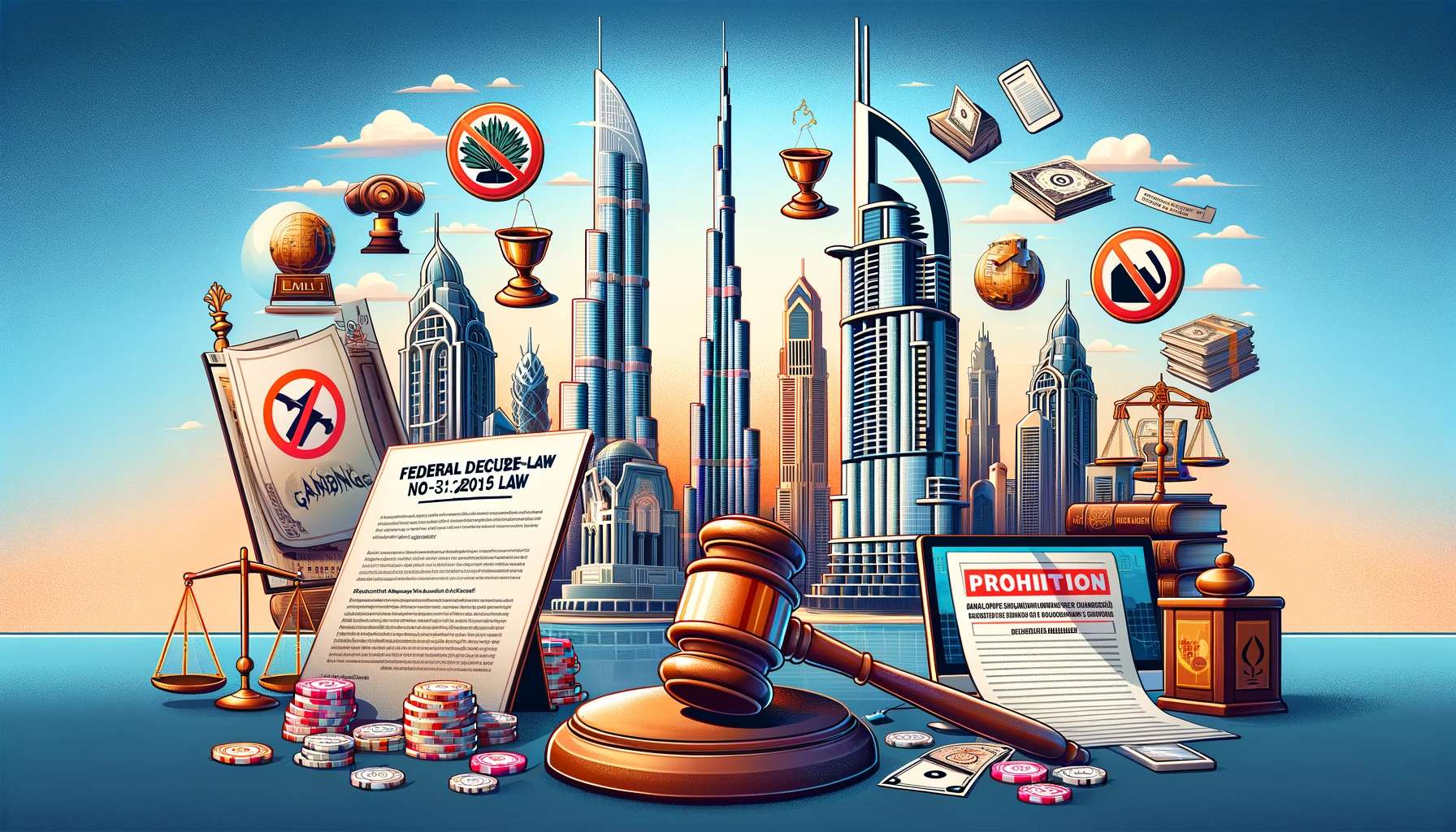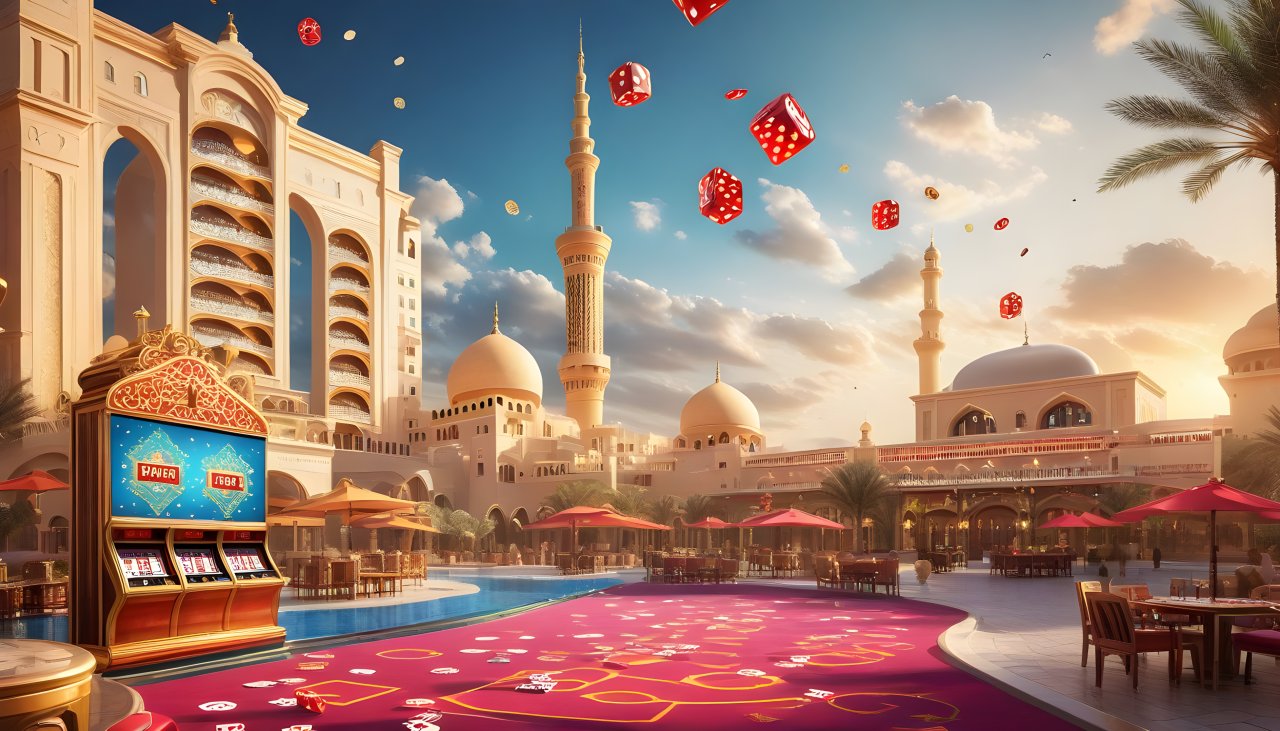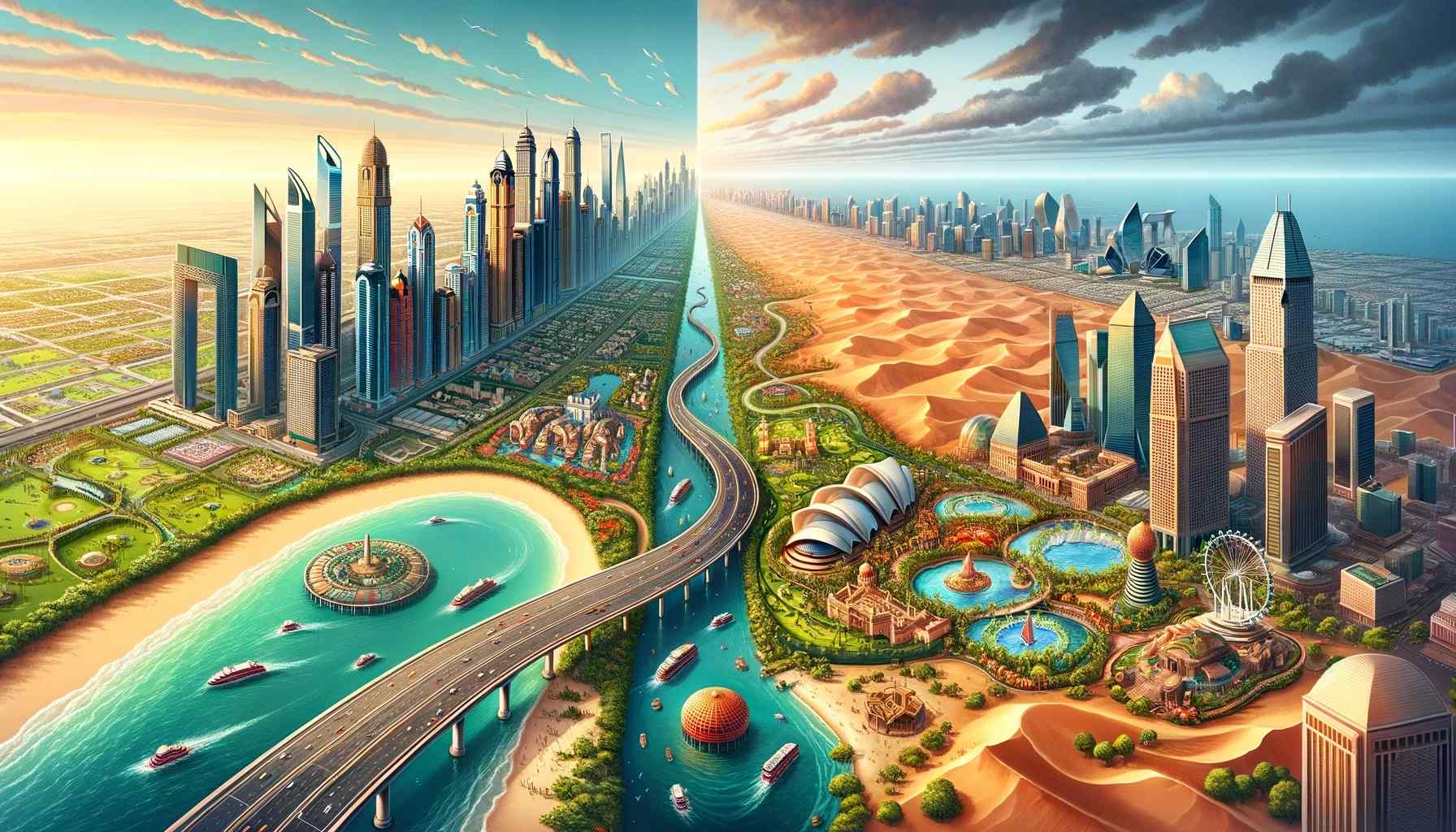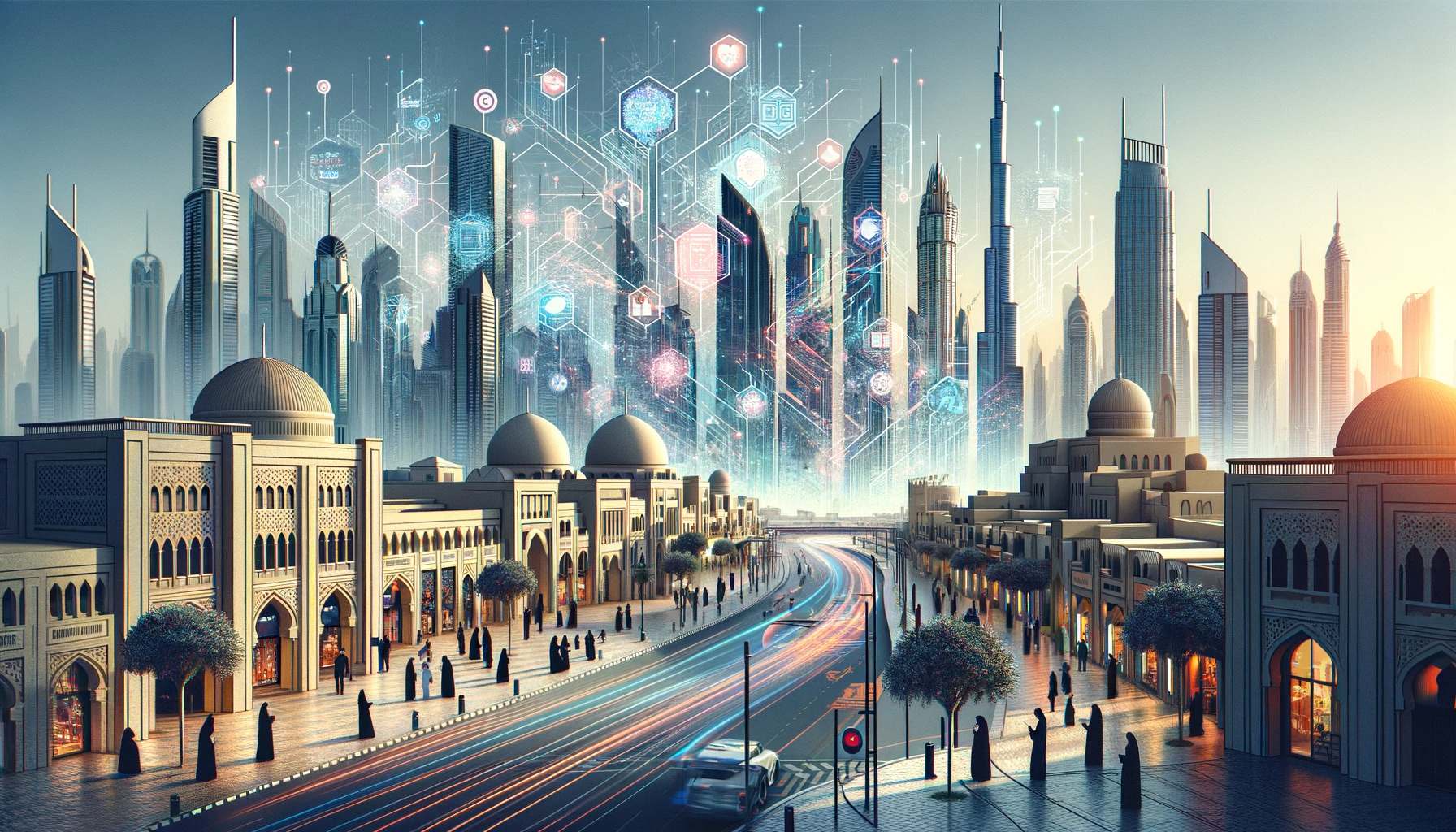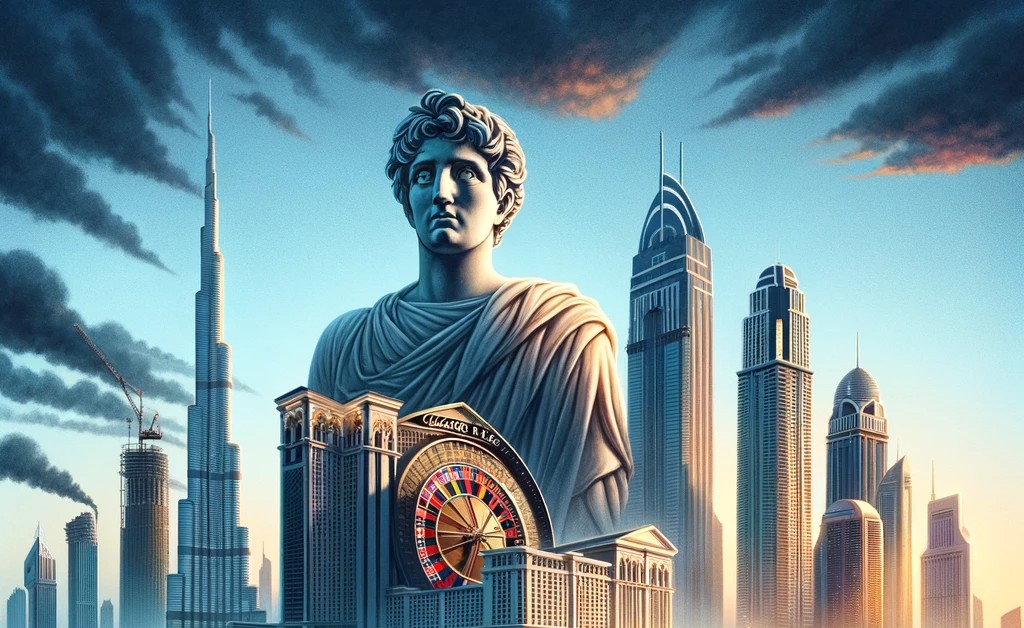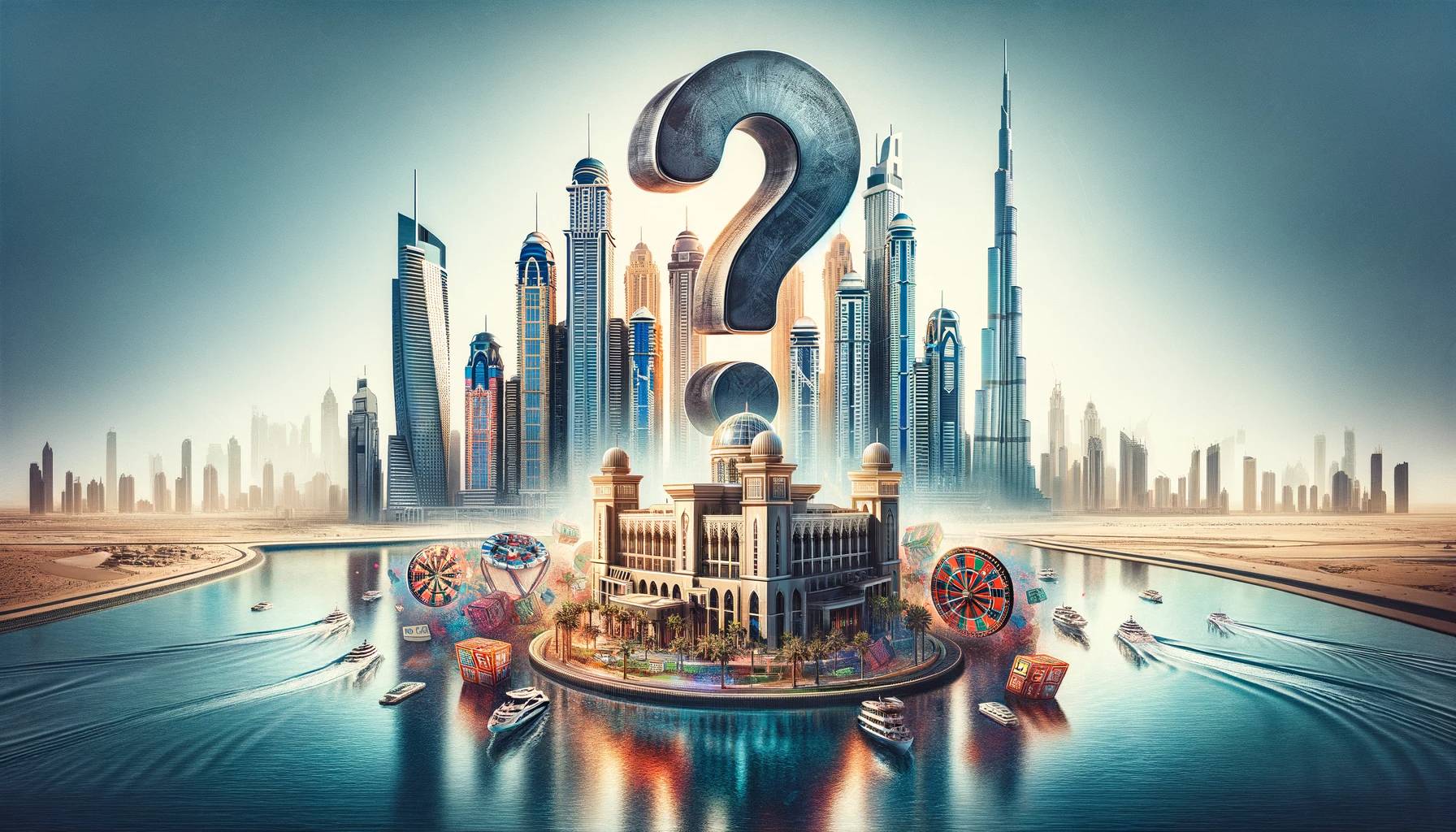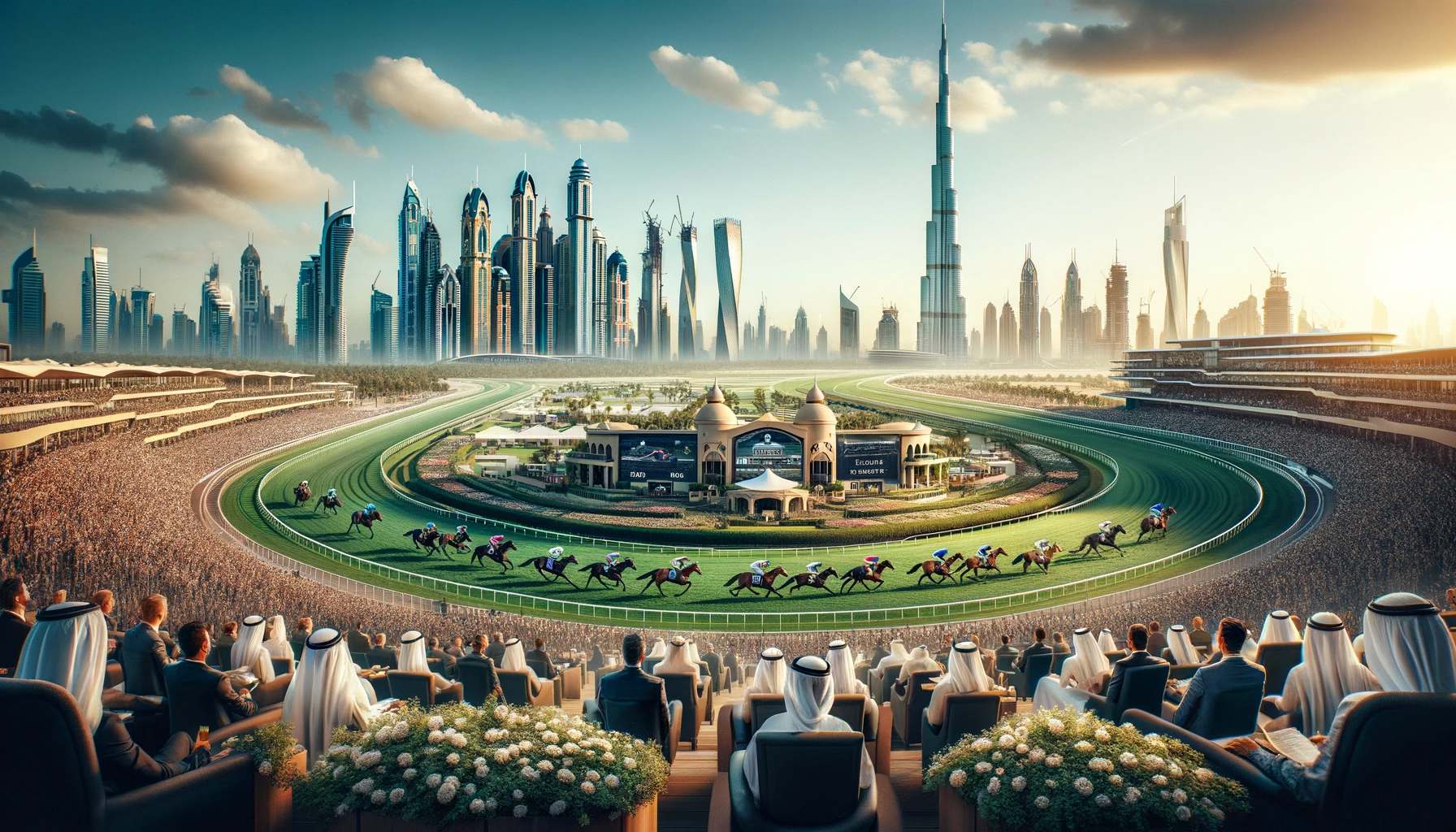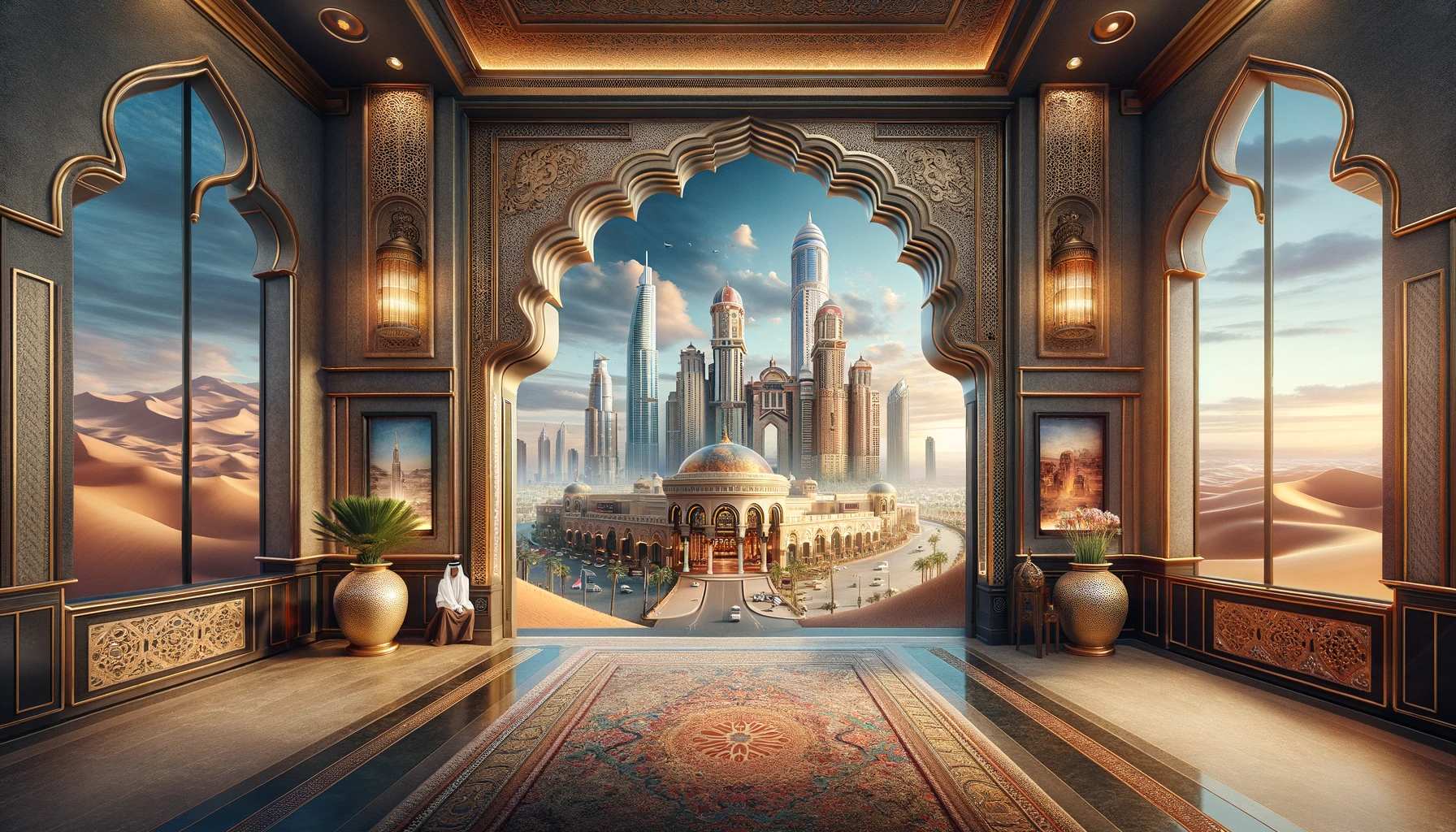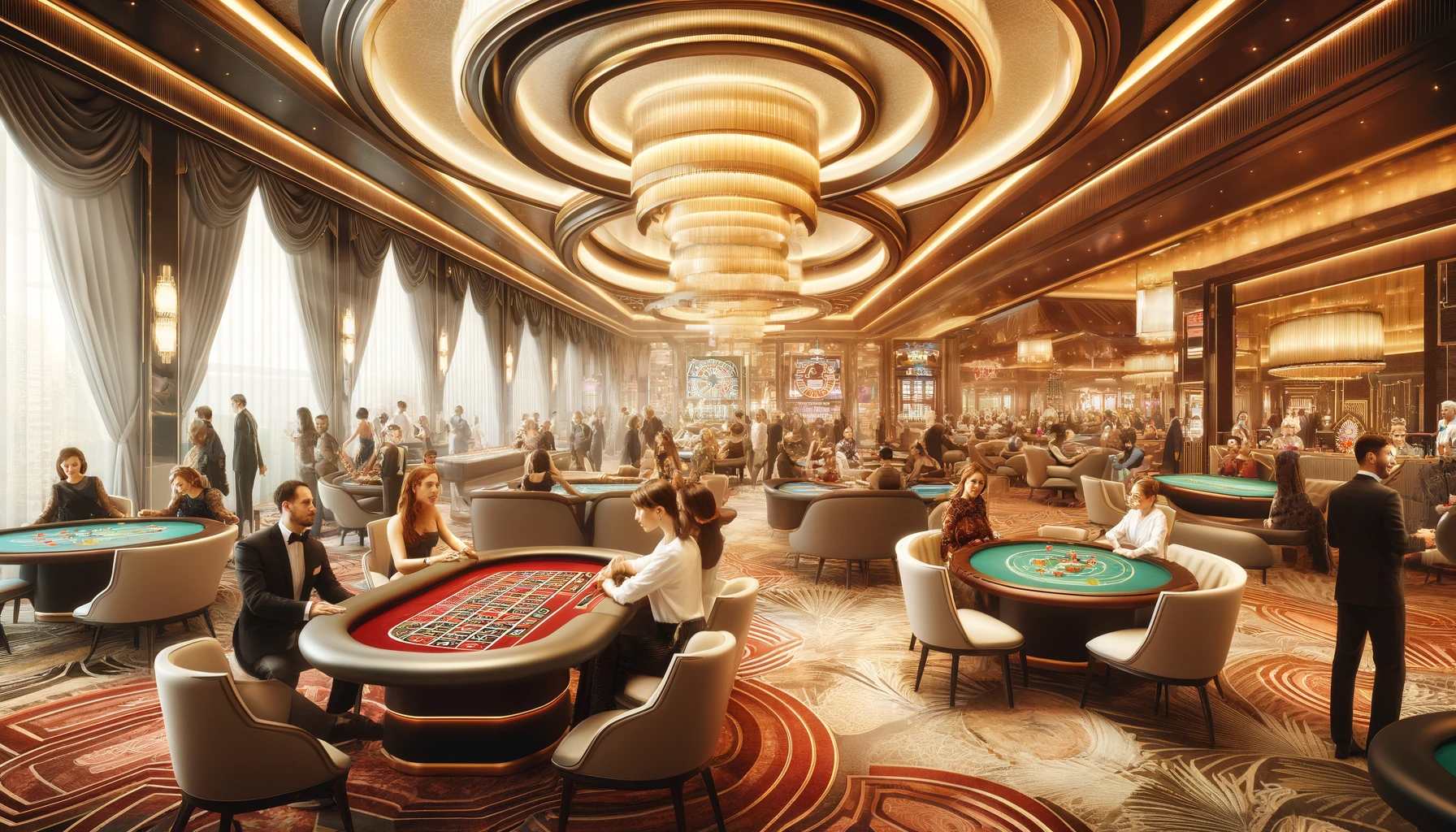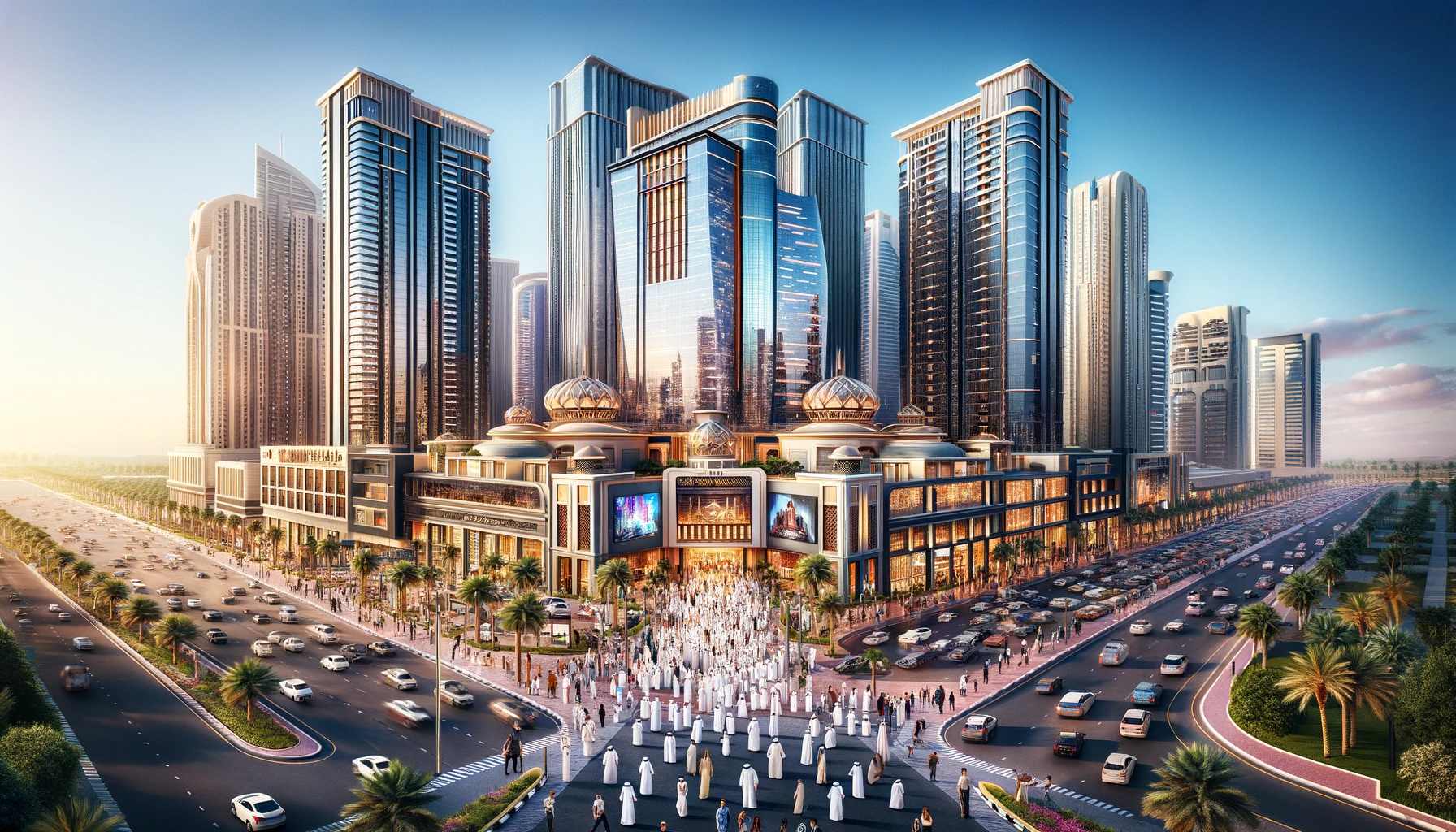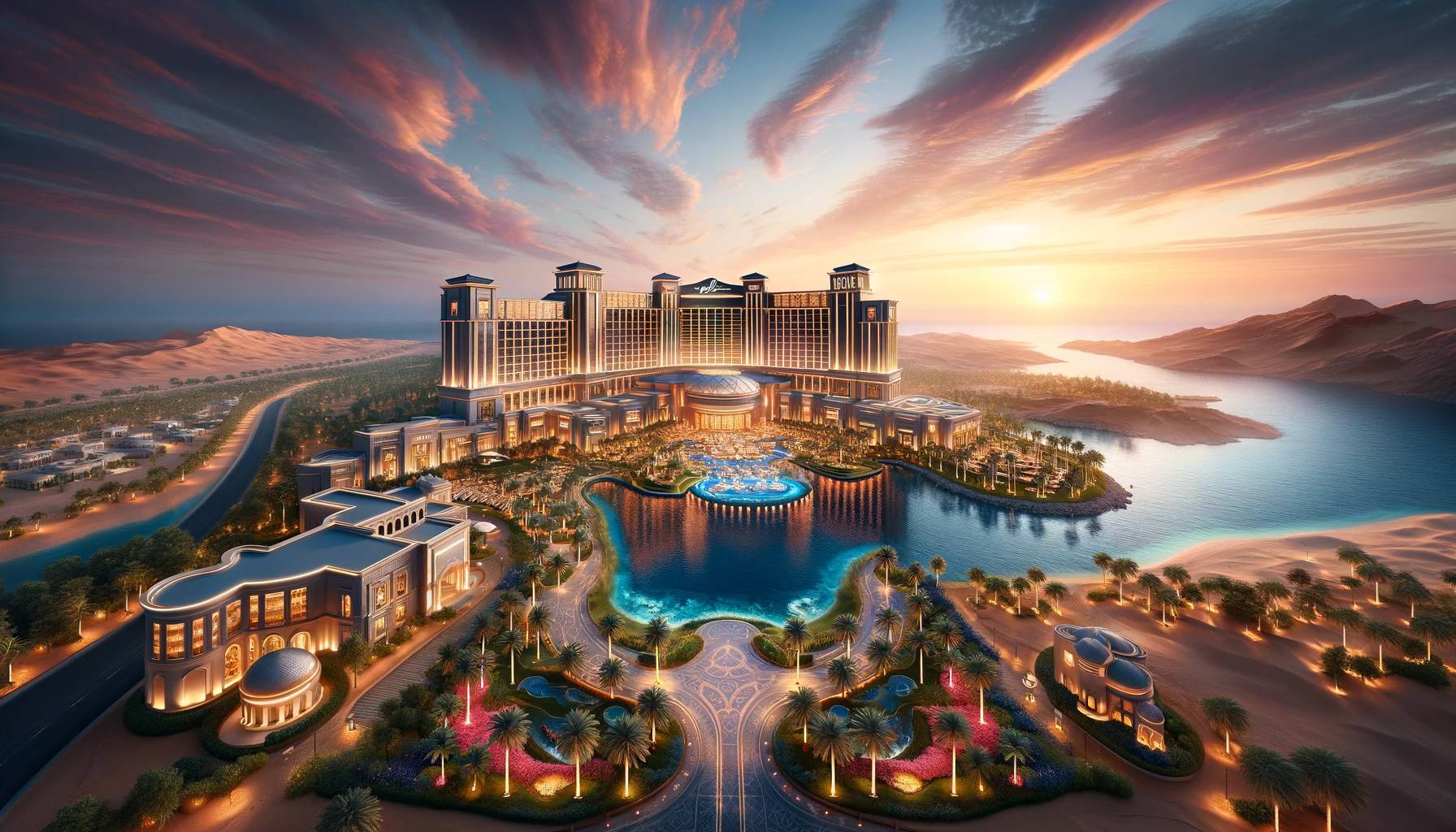Written by
Atif Nader
About Author
A native of the UAE with over a decade in the casino industry, Atif Nader stands as a leading voice in iGaming. Graduating from the University of Dubai, he seamlessly merged academic brilliance with his passion for gaming. As a vital contributor to Dubai Casinos, Atif's expert insights guide users throughout their gambling journey, ensuring trustworthiness and strategic play. With Atif on board, you're in expert hands.
Last Update
29 days ago
Last update:
How Gambling Could Change Dubai's Nightlife
How Gambling Could Change Dubai’s Nightlife
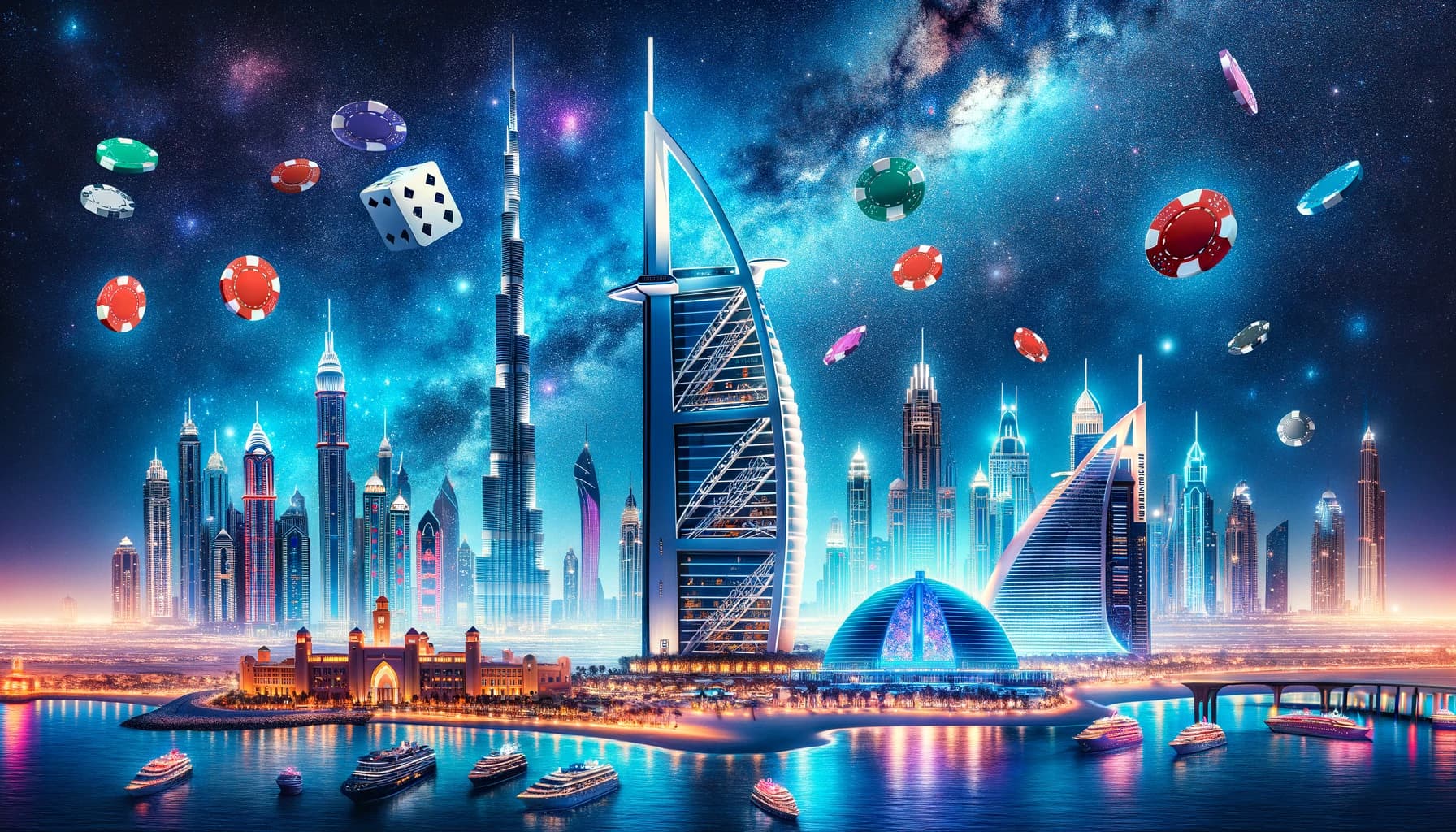
Dubai’s nightlife may take on whatever mood you choose, whether you’re in the mood to party till the early morning hours or to relax to the sound of lapping waves under the moon. Or why not take a deep dive and explore the underwater world?
You may even don your favorite cowboy garb and explore the undeveloped areas around Dubai’s bustling metropolis. Likewise, the introduction of gambling could have a massive impact on the city. This piece covers the introduction of gambling to Dubai and the UAE.
Current scenario and historical view
It is crucial to note that Islam is the nation’s official religion due to the Constitution of the UAE. Laws at both the federal and emirate levels prohibit gambling and gambling promotion because such activities are forbidden in Islam.
The question of whether or not gambling and gambling ads are allowed is a hotly debated one in many countries. However, rather than a religious aspect driving the demand for regulation, these concerns often center on children or minors’ involvement in gambling culture and safeguarding vulnerable individuals.
The religious conscience against gambling
Gambling is illegal under Islamic law, which the UAE government and society upholds. But it doesn’t imply Muslims never engage in gambling.
There is widespread agreement among the world’s main Islamic countries that betting with actual money is forbidden.
Therefore, despite its popularity among business travelers, Dubai lacks casinos. There are no casinos, lotteries, or places to wager on sports in the city legally. Betting at physical locations is illegal under any circumstances.
A striking contrast may be seen when comparing Dubai to countries like Canada, where traditional and virtual casinos are legal. Suppose you are a Canadian or anyone outside the UAE traveling to Dubai.
In that case, it is worth remembering that what you enjoy at home may not be acceptable in Dubai- even if it is gambling online.
However, certain things that are closely related to betting are allowed. For instance, Dubai is a great place to go to the races.
Meydan Racecourse, which has both grass and dirt tracks, is one such venue, and it attracts both international thoroughbreds and local Arabian horses for high-stakes competition.
For decades, the greatest horses in the world have competed for millions of dollars at the Dubai World Cup, the largest horse race in Dubai.
Bettors from other nations may wager on these events inside their borders, but doing so is illegal in the United Arab Emirates.
The United Arab Emirates has a simple regulatory framework: gaming and gambling-related advertising are strictly forbidden, with the below exceptions. It includes providing online gaming services to UAE citizens from offshore.
Exceptions
The UAE has a strict ban on gambling; however, contests (including raffles) are legal with the proper authorization from the government.
Wagers on some sporting events, shooting competitions, and tests of strength are also legal under UAE law.
Several conditions should be satisfied for a competition to be valid: the winner must know what they’re competing for, who is awarding the reward, and what the competition is about.
However, adhering to the guidelines outlined in the Civil Code is easier said than done. Only the party to a wagering contract who wins the contest by their efforts and talent is entitled to the reward.
Any agreement that could result in the prize being paid to a third party (i.e., someone who is not a participant in the race/contest, etc.) would be beyond the limits of what is allowed and would be considered illegal “gambling” and liable to the criminal laws that ban gambling, which are set out below.
UAE Gambling Laws
Prohibitions on gambling and gambling promotion are spelled out in various municipal statutes. The restriction is either spelled out in full or addressed indirectly by several statutes.
It is to say that many other immoral or anti-Islamic practices are illegal in the United Arab Emirates because of the religious foundation of the legislation there.
Depending on the specifics, these rules may not only apply to those inside the UAE but also to people outside of the country.
- Gambling is “a game whereby every one of the participants to that agrees – in case he is a loser to that – to compensate the winner a particular amount of cash or whatever else is agreed upon” under the Penal Code. Punishment for violators includes jail time or monetary fines. It also makes it illegal to run a casino or other gambling establishment or to host any gambling or chance game in a public area.
- Establishing, maintaining, or operating a website, transmitting, transferring, publishing, or re-publishing over a computer connection, gambling activity, and whatever may harm public morals is punishable by imprisonment or a fine under the Cyber Crimes Law. Production, creation, preparation, transmission, or storing for exploitation, distribution, or presentation to others over a computer network is likewise forbidden, as are any forms of gambling or anything deemed offensive to the general public.
- Some media rules stipulate that media companies and outlets must follow certain criteria regarding ads they air or print. Ads about gaming must adhere to the following guidelines:
- Not to disrespect other divine faiths or God, and to avoid offending God and Islamic beliefs.
- To refrain from sharing any content that might be deemed immoral.
- To abstain from sharing anything that might incite discrimination against children, women, or any other group of people.
- A policy known as “Internet Access Management” has been implemented by the Telecommunications Regulatory Authority. According to this regulation, ISPs in the UAE must restrict access to any sites that include material that violates UAE law or is deemed offensive to the country’s moral or public standards. As a consequence, access to gambling-related material is largely restricted from browsing on the internet in the UAE.
Advances towards legalizing gambling
After years of conjecture, the United Arab Emirates is getting closer to becoming the inaugural Gulf state to establish casinos. This move might potentially draw in roughly $7 billion of income annually.
Jim Murren, a gambling industry veteran and the former CEO of MGM Resorts International, will preside over the government organization to oversee commercial gambling and a national lottery.
Murren has over 30 years of expertise and is responsible for making MGM the biggest casino operator on the Las Vegas Strip. Kevin Mullally, who has likewise been in the business for over three decades, has been named CEO.
This change has been eagerly awaited. A bar on the hotel’s top level has been the subject of much curiosity since the sail-shaped Burj Al Arab was built just off Dubai’s shore nearly 25 years ago.
In addition, it occurs about a month after Wynn Resorts, which is constructing a $3.9 billion gambling complex in Ras Al Khaimah (an emirate around 45 minutes from Dubai), said that it anticipates obtaining a license “soon.”
Earlier this year, top government officials reported that there were no urgent plans to legalize gambling. However, casino operators, consultants, and attorneys acquainted with the subject claim that there have been early conversations, and a change is being examined.
There’s a lot at risk. The United Arab Emirates (UAE) has the potential to earn as much as $6.6 billion in gaming revenue annually, potentially surpassing Singapore, home of the famous Marina Bay Sands resort.
The United Arab Emirates (UAE) now prohibits gambling according to Islamic law, often known as Shariah law. The practice is forbidden in Islam and is thus criminal in the nation; anyone found guilty faces a fine or, up to two years in jail, or both.
Since Covid, Dubai — the Gulf region’s tourist and commercial center — has lured hedge investors, athletes, crypto players, and influencers in droves. Since Russia invaded Ukraine, the city has also become popular among Russians.
Dubai, in particular, has implemented several changes to preserve its advantage. You may soon be able to play roulette or blackjack at one of the city’s numerous premium hotels in response to increased competition from neighboring countries like Saudi Arabia and Qatar.
Singapore’s case study
The Gambling Control Act 2022 and the Gambling Regulatory Authority of Singapore Act 2022 both became effective in Singapore on August 1 last year.
In addition to establishing a unified Gambling Regulatory Authority (GRA), allowing social gambling, and adding new offenses to fight proxy gambling and underage gambling, these two laws radically alter the gambling landscape in Singapore.
Corporations outside the gambling sector may discover that certain activities are now subject to GRA rules due to the expansive nature of the new legislation.
These changes have changed Singapore’s gambling sector and led to many changes, including an improved GDP. Tourism generates around 9% of GDP in the United Arab Emirates.
The United Arab Emirates would generate an additional $6.6 billion annually if the gambling industry accounted for 1.6% of GDP, as it does in Singapore.
What we could see in Dubai’s Nightlife
There will soon be a new era of change in the United Arab Emirates, an oasis of affluence.
The prospective legalization of gambling and the continuous building of mega-resorts by global industry giants like Wynn Resorts and MGM Resorts hints at exciting prospects for Dubai’s tourism and real estate industries.
This change in thinking can potentially bring in a different kind of foreign visitor and investor, which would have far-reaching effects on the economy. So, what could this change bring?
Increase of tourism
Dubai has long been known as a playground for the world’s wealthy, thanks to its reputation as a top tourist destination, abundant high-end shopping, cutting-edge technology, and one-of-a-kind attractions. The possibility of widespread gambling legalization is a game-changer.
With the addition of lavish casinos, Dubai is set to become a mecca for high-stakes gamblers worldwide. If this happens, the hotel, eating, entertainment, and retail industries may all benefit from a surge of visitors.
With the projected $2bn Wynn property on Al Marjan Island and a prospective MGM property, Dubai might soon match Las Vegas in delivering an immersive, luxurious gaming experience to a global audience.
Since tourism now accounts for around 9% of GDP in the UAE, the region would produce an extra $6.6 billion per year if the gambling sector made up 1.6% of GDP, as it does in Singapore. That significantly impacts the amount of revenue flowing through the country.
A Winning Hand for Property Investment
Demand for both short- and long-term housing should rise due to the multiplier impact of more tourism. As builders and investors try to meet the increased demand, housing costs and rents might increase, stimulating the market.
Furthermore, developing such mega-resorts is anticipated to boost the commercial real estate sector. Infrastructure upgrades, new retail complexes, and more hotels and restaurants are all possible outcomes of such projects’ tendency to catalyze growth in the surrounding area.
Residential real estate sales close to these resorts may benefit from the increased interest from prospective buyers attracted by the promise of a vibrant, Las Vegas-style strip.
It can increase home prices, giving the residential real estate market an exciting new facet.
The Economic Domino Effect
Legalizing gambling might have a multiplicative impact on the economy, spawning thousands of new employment in industries outside of tourism and real estate.
The variety of work options, such as building and operating casinos, hospitality and retail, and everything in between, might encourage more people to settle in the area, stimulating a cycle of demand and supply in the housing market.
Increased Diversity in Nightlife Options
Legalizing gambling could diversify nightlife by attracting a broader audience seeking entertainment beyond traditional offerings.
Casinos and betting venues would draw in a more diverse crowd, including international tourists and locals with varied interests.
This influx of patrons would stimulate the development of complementary entertainment options, such as live shows, concerts, and themed events, transforming Dubai into a multifaceted nightlife destination.
The collaboration between gambling establishments and auxiliary attractions would create a vibrant and inclusive nightlife scene, catering to different tastes and preferences, which could enhance the city’s overall nightlife diversity.
Social and Cultural developments towards an Occidental culture
Dubai might blend aspects of the strict Islamic culture with contemporary tourism, such as gambling, to attract more visitors. Growth prospects exist, for instance, for Islamic hotels; several Middle Eastern examples have shown how Islamic hospitality might be promoted.
Dubai might learn from these projects and create community-oriented “meaningful experiences” in public spaces.
Even though some emirates have established cultural initiatives via heritage and museum tourism, visitors to Dubai have experiences that are culturally and socially disconnected from the city since no comprehensive strategy has been devised to prioritize the development of cultural heritage forms.
There is a lot of room for innovation in the cultural capital scene in Dubai. More money is being spent at entertainment and leisure venues, including movie theaters, complexes, and urban theme parks. The addition of casinos has the potential to increase this outlay considerably.
With the concentrate on boosting tourists, little attention has been devoted to community development in Dubai.
The complexity of figuring out how to incorporate new technologies into established cultural practices is reflected in the wide variety of solutions that have been tried.
One strategy involves discarding established norms, favoring a uniform worldwide architectural style as a symbol of development and grandeur.
It has resulted in suggestions that are better suited to the Dubai culture. The resulting environment is largely segregated and industrialized, with little visible traces of the local culture, identity, or customs.
On the other hand, one might place excessive emphasis on the past and re-create structures emblematic of Islamic architectural tradition.
While gambling in Dubai is currently prohibited due to Islamic principles, its introduction could stimulate social and cultural shifts towards Occidental influences.
Casinos may attract a diverse international crowd, fostering cultural exchange and understanding. The entertainment industry associated with gambling could introduce Western performances, contributing to a more cosmopolitan cultural landscape.
Additionally, social interactions within these establishments might encourage a more liberal atmosphere, potentially influencing societal norms. However, the impact would depend on careful integration to respect local values and traditions while embracing new elements from the Occidental world.
The Game’s Balance
It is imperative that, as the conversation over legalizing gambling proceeds, we take into consideration the possible societal and economic effects that might result from such a move.
The possibility of gaining advantages is appealing; nevertheless, this must be weighed against the possibility of incurring certain drawbacks.
But as the waiting game continues, industry heavyweights like Wynn Resorts and MGM Resorts are poised to take advantage of any possibilities that may arise due to prospective changes to the law.
If gambling were legal in Dubai, it would likely usher in an exciting new period of economic expansion and wealth for the city’s tourist and real estate industries.
The stakes might be high, but determining the winner is still a matter of chance, just as in gambling. Time will tell whether or not this risk was profitable in the long run.
At this time, the world is keeping a close eye on the United Arab Emirates as it takes a daring step into an uncertain but possibly fruitful future.

